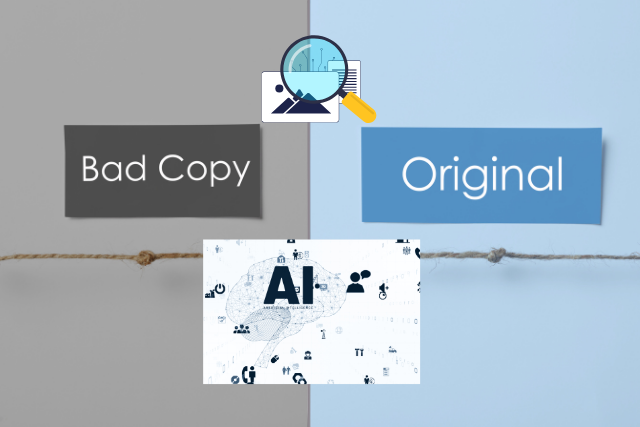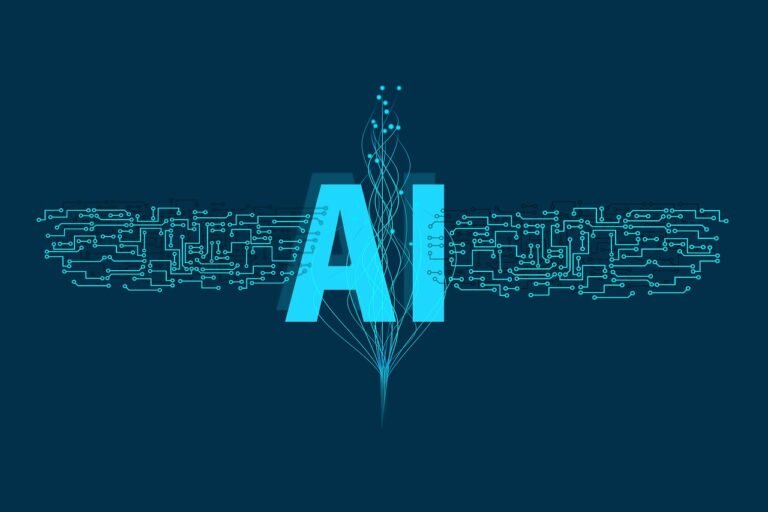These days coders are continually seeking innovative solutions to streamline their workflow and enhance productivity. The emergence of artificial intelligence (AI) tools has dramatically transformed the coding community, providing a wide array of advanced functionalities that significantly affect how developers approach their work. From automating repetitive tasks to offering intelligent code suggestions, AI tools are revolutionizing the way we write, debug, and optimize code.
In this article, we’ll dive deep into the latest AI tools for coders, explore their features, and discuss how they are shaping the future of software development. Whether you’re a seasoned developer or just starting your coding journey, these tools can help you work smarter, faster, and more efficiently.
Table of Contents
Groundbreaking AI Tools for Coders
1. CodeAI
CodeAI is a powerful platform that utilizes machine learning algorithms to analyze code snippets and provide intelligent suggestions for improvements. It automatically detects potential bugs, suggests optimizations, and offers code completions, empowering coders to produce cleaner and more efficient code in less time.
- Key Features:
- Real-time Bug Detection: CodeAI scans your code in real-time to identify potential bugs and vulnerabilities, offering suggestions for fixes before they become problematic.
- Code Optimization: The tool provides recommendations for optimizing code performance, ensuring that your applications run efficiently.
- Intelligent Code Completion: CodeAI offers context-aware code completions, helping you write code faster and with fewer errors.
- IDE Integration: It integrates seamlessly with popular Integrated Development Environments (IDEs) like Visual Studio Code and IntelliJ IDEA, making it easy to incorporate into your existing workflow.
- Use Cases:
- Large Codebases: CodeAI is particularly useful for developers working on large codebases, as it helps maintain consistency and quality across projects.
- Team Collaboration: The tool can be used in team environments to ensure that all team members adhere to coding standards and best practices.
2. DeepCode
DeepCode is a sophisticated AI-powered static code analysis tool that uses deep learning techniques to identify potential vulnerabilities in codebases. It flags security risks, performance issues, and code smells, ensuring the reliability and robustness of applications.
- Key Features:
- Security Vulnerability Detection: DeepCode scans your code for security vulnerabilities, such as SQL injection and cross-site scripting (XSS), and provides actionable recommendations.
- Performance Optimization: The tool identifies performance bottlenecks and suggests optimizations to improve the speed and efficiency of your applications.
- Code Smell Detection: DeepCode flags code smells, such as duplicated code and overly complex functions, helping you maintain clean and maintainable code.
- Integration with Version Control Systems: DeepCode integrates with GitHub, GitLab, and Bitbucket, allowing you to analyze code directly from your repositories.
- Use Cases:
- Code Reviews: DeepCode can be used during code reviews to automatically identify issues and suggest improvements, reducing the time spent on manual reviews.
- Continuous Integration: The tool can be integrated into your CI/CD pipeline to ensure that code quality is maintained throughout the development process.
3. Kite
Kite is an AI-driven code completion tool that predicts code snippets based on context and suggests relevant completions. It supports over 16 programming languages and integrates seamlessly with popular IDEs like PyCharm, VS Code, and Atom.
- Key Features:
- Context-Aware Code Completions: Kite uses machine learning to understand the context of your code and provide relevant suggestions, reducing the need for manual typing.
- Documentation Lookup: The tool allows you to quickly access documentation without leaving your editor, helping you understand functions and libraries more effectively.
- Multi-Language Support: Kite supports a wide range of programming languages, including Python, JavaScript, Java, and more.
- Offline Mode: For privacy-conscious developers, Kite offers an offline mode that processes code locally on your machine.
- Use Cases:
- Rapid Prototyping: Kite is ideal for developers who need to quickly prototype and iterate on code, as it speeds up the coding process.
- Learning New Languages: The tool can be particularly useful for developers learning new programming languages, as it provides helpful suggestions and documentation.
4. TabNine
TabNine is another AI-powered code completion tool that uses deep learning to predict and suggest code snippets. It supports over 20 programming languages and integrates with most popular code editors.
- Key Features:
- Advanced Code Predictions: TabNine uses GPT-based models to provide highly accurate code predictions, even for complex and niche use cases.
- Multi-Language Support: The tool supports a wide range of programming languages and frameworks, making it versatile for different types of projects.
- Customizable Suggestions: TabNine allows you to customize its suggestions based on your coding style, ensuring that the recommendations are relevant to your work.
- Local Processing: For enhanced privacy, TabNine processes code locally on your machine, ensuring that your code remains secure.
- Use Cases:
- Productivity Boost: TabNine is ideal for developers looking to increase their productivity by reducing the time spent on typing and searching for code snippets.
- Code Consistency: The tool helps maintain code consistency across projects by providing standardized suggestions based on your coding patterns.
5. GitHub Copilot
GitHub Copilot, powered by OpenAI’s Codex, is an AI pair programmer that helps you write code faster by suggesting entire lines or blocks of code. It integrates directly with Visual Studio Code and supports a wide range of programming languages.
- Key Features:
- Context-Aware Code Suggestions: GitHub Copilot understands the context of your code and provides relevant suggestions, making it easier to write complex functions and algorithms.
- Multi-Language Support: The tool supports a wide range of programming languages, including Python, JavaScript, TypeScript, Ruby, and more.
- Real-Time Collaboration: GitHub Copilot can be used in real-time collaboration environments, allowing multiple developers to work together more effectively.
- Continuous Learning: The tool continuously learns from your coding patterns, improving its suggestions over time.
- Use Cases:
- Automating Repetitive Tasks: GitHub Copilot is ideal for automating repetitive coding tasks, allowing developers to focus on more complex problem-solving.
- Learning and Exploration: The tool can be used to explore new programming languages and frameworks, as it provides helpful suggestions and examples.
The 2025 Coding Landscape
The coding landscape of 2025 has been fundamentally transformed by the integration of AI tools. Whether you’re a beginner or an experienced developer, leveraging these tools can significantly enhance your coding capabilities. The proliferation of AI-driven coding tools has become essential for developers who aspire to stay competitive in an ever-evolving market.
In 2025, several additional innovative AI tools are widely utilized by developers:
- TensorFlow: This open-source machine learning library from Google facilitates building and training deep learning models. Learn more.
- PyTorch: Known for its ease of use and flexibility, this open-source library is particularly popular in areas like computer vision and natural language processing. Learn more.
- Keras: A high-level neural networks API in Python, Keras is renowned for its user-friendly interface and fast prototyping abilities. Learn more.
- Scikit-learn: A simple yet efficient tool for data mining and analysis, Scikit-learn offers a range of supervised and unsupervised learning algorithms. Learn more.
- DeepAI Gym: This toolkit aids in developing and comparing reinforcement learning algorithms, providing various environments for building and testing AI agents. Learn more.
- Jupyter Notebook: An open-source web application, Jupyter emphasizes creating and sharing documents with live code, visualizations, and narrative text, making it a favored choice among data scientists and researchers. Learn more.
Enhancing the Developer Experience
These AI tools encapsulate a diverse range of capabilities designed to improve developers’ experiences with artificial intelligence and machine learning technologies:
- Code Completion Tools: Offering predictive text, auto-completion of snippets, and syntax suggestions, these tools save time, reduce errors, and enhance code readability.
- Code Optimization Tools: By identifying inefficiencies and suggesting improvements, these tools optimize performance, leading to enhanced efficiency and scalability.
- Bug Detection Tools: These tools identify bugs and suggest fixes while automating testing processes, thereby minimizing debugging time and enhancing software quality.
- Code Review Tools: Automating code reviews and providing collaboration features, these tools facilitate team collaboration and ensure code consistency.
- Automated Documentation Tools: Automatically generating and updating documentation from code comments improves code readability and maintainability.
By harnessing these cutting-edge AI tools, coders experience increased productivity, improved code quality, enhanced collaboration, and accelerated development cycles. These tools automate repetitive tasks, allowing coders to concentrate on more complex problem-solving endeavors.
Conclusion
The latest AI tools for coders provide a wealth of features and benefits that can significantly elevate the coding experience. Using these tools, developers can enhance their productivity, improve code quality, and foster collaboration, ultimately leading to more efficient and successful software development projects.
Whether you’re looking to automate code completion, optimize performance, or detect bugs early, there’s an AI tool out there to meet your needs. Embrace the future of coding today and revolutionize the way you develop software!






